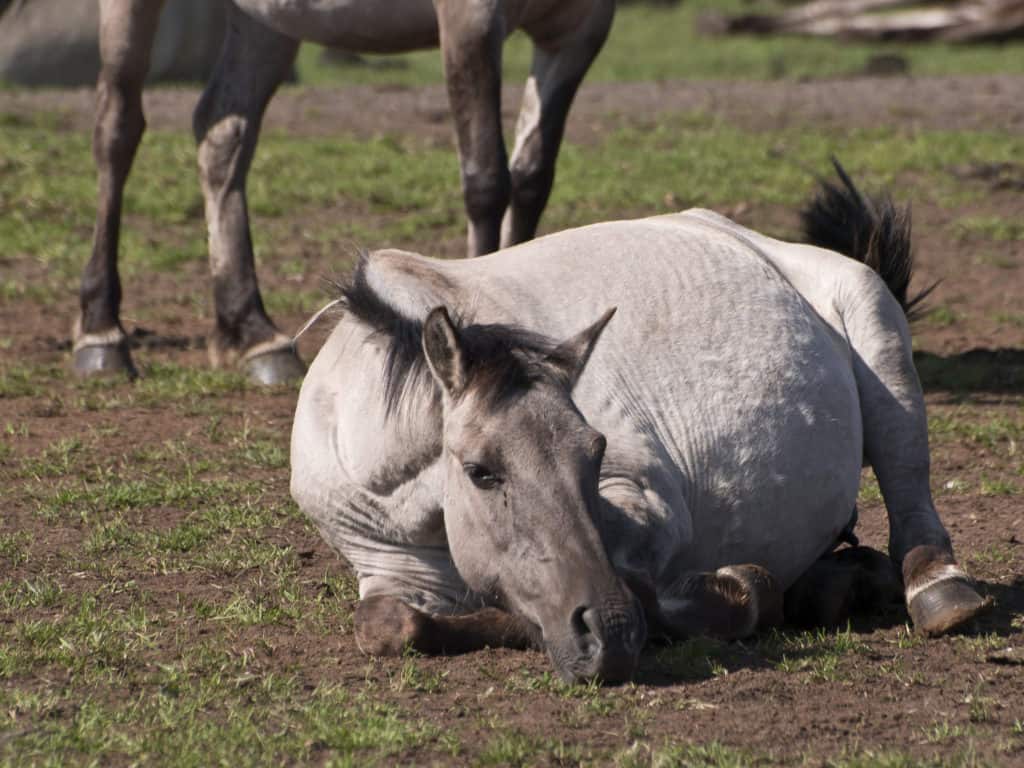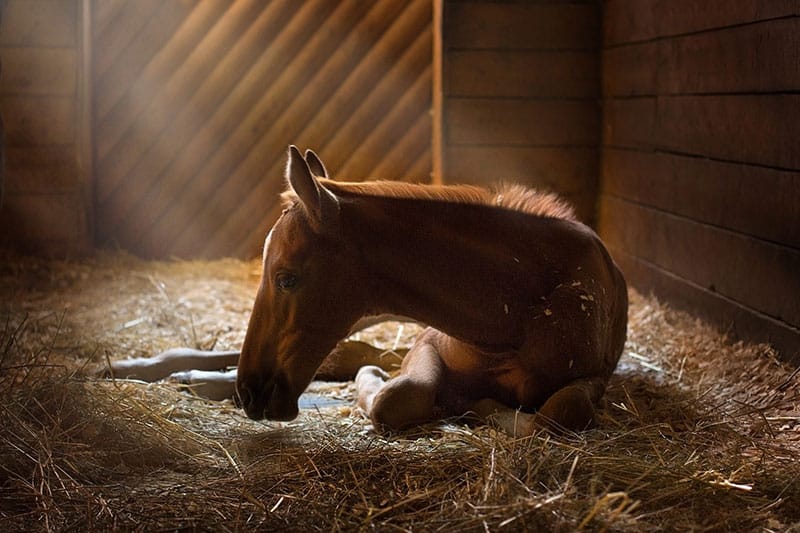
A Tale of 2 Equine Gastric Ulcer Syndromes
Learn about the distinctions between squamous and glandular disease and how to help your horse avoid painful gastric ulcers.

Learn about the distinctions between squamous and glandular disease and how to help your horse avoid painful gastric ulcers.

Rotaviral diarrhea is a life-threatening disease that usually affects foals younger than 6 months.

Research shows slight shifts in the horse’s intestinal microbiome can have far-reaching effects.

Getting back to basics and simplifying meals might be the key to keeping the horse’s hindgut healthy and functioning properly.

Learn how equine veterinary clinics institute strict biosecurity measures to contain, prevent, and control disease outbreaks.

Horses evolved to eat frequent, small roughage meals throughout the day, so why do we only feed them twice? Read more in The Horse‘s 2024 Preventive Care issue.

After years of speculating that colic occurs more frequently in horses that crib, researchers have finally provided consistent data confirming this association.

Taking these steps might help protect your mare and her foal.

Decipher fact vs. fiction when it comes to the complicated world of feeding horses.

An equine nutritionist breaks down what’s in a grain-free feed and how you might increase calories for a performance horse consuming a grain-free diet.

Horses on antibiotics might experience feeding, housing, and management changes as well as increased stress, which are associated with gastric ulcer development.

New research might lead to a vaccine for this highly contagious disease.

Newly identified liver viruses in horses might be more common than we realize.

Understanding how your growing foal’s digestive system works can help you recognize and avoid potential problems.

Knowing the causes of colic in horses, treatment options, and why referral might be necessary can give your horse a better outcome in a colic emergency.

Researchers have developed a new recommendation for horses being treated with the drug for a period of eight weeks.
Stay on top of the most recent Horse Health news with
"*" indicates required fields